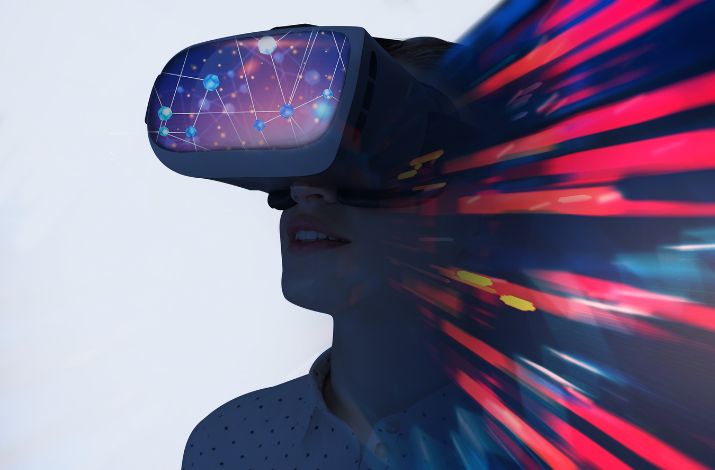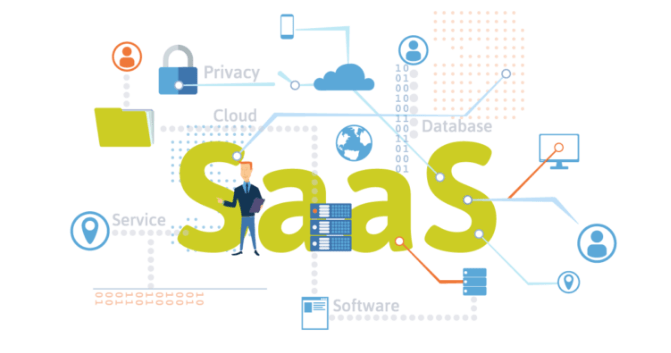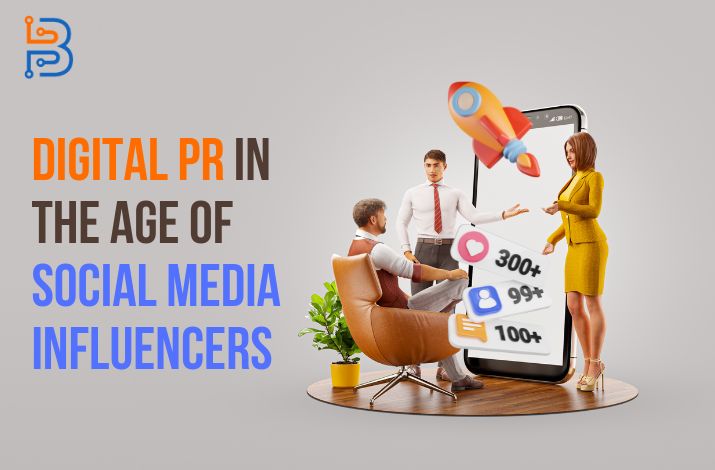Emerging Tech Trends in B2B Marketing – What’s Next for 2024?

So, from all this rapid tech innovation coming to fruition, 2024 is going to be an amazing year for the world of B2B marketing. AI and machine learning will finally claim the stage and open up new territories of personalization we had only dreamed of. They use this data to mold campaigns to the tastes and habits of individuals. That’s not just better news for customer engagement, it’s also sending conversions through the roof.
Predictive analytics, meanwhile, has the power to flip the script on lead generation and targeting customers through the use of AI. Past data is filtered in a way that trends can be spotted and predictions of what the customer will do next. It even helps B2B marketing professionals to stay a step ahead in crafting strategies that meet the customers right where they are.
Emerging Tech Trends in B2B Marketing
Here are mentioned below:
Artificial Intelligence (AI) and Machine Learning
Artificial Intelligence and Machine learning technology have reshaped the business landscape and B2B marketing. AI-powered predictive analytics enables you to predict the future, get insights, and collect the data of consumers. Making better choices is made easier as a result. Furthermore, this technology makes large-scale customization conceivable.
Companies may now provide extremely tailored advice and information to individual customers, improving customer satisfaction and engagement. Additionally, by offering quick, round-the-clock assistance with inquiries and support requests, chatbots driven by AI have completely altered client care.
Account-Based Marketing (ABM) Technologies
The way B2B organizations approach their sales and marketing plans is currently being redefined by technologies known as account-based marketing (ABM). These technologies give businesses a means to accurately determine and concentrate on high-value accounts, creating highly specific advertising initiatives that are tailored to the distinctive demands and tastes of each account.
They do this through using sophisticated targeting and segment capabilities. This strategy promotes the effectiveness of marketing initiatives and increases their efficiency, which in turn builds deeper connections, raises rates of engagement, and ultimately boosts sales. It is possible to approach the market with a more focused strategy thanks to ABM Technologies.
Augmented Reality (AR) and Virtual Reality (VR)
Both augmented reality (AR) and virtual reality (VR) are setting new norms for fully immersive experiences. You can advertise the products in a more visually appealing way to customers and clients. These allow imaginable to create visually captivating presentations that vividly emphasize features and advantages in a manner that is not feasible with traditional methods.
Customers can observe how items fit into their day-to-day activities in real-time with AR and VR, which overlay facts with digital data to generate fully immersive circumstances that are perfect over explained showings of goods or virtual tours of places that may be far away. Furthermore, through virtual meetings and conferences, AR and VR are changing the face of professional gatherings. These platforms provide a cutting-edge method for collaboration and engagement across the globe.

Blockchain for Marketing
In the realm of marketing, blockchain technology is starting to change things up, especially for people who value transparency and safety. What if you could monitor every advertisement you post with extreme transparency and security? That is the capability of blockchain! It is comparable to having an unhackable digital ledger that is visible to all. This implies that your customers can completely trust you when you tell them anything about your product.
Not to mention this awesome thing known as smart contracts. They function similarly to automated contracts, guaranteeing that all parties receive what is due to them for example, that producers receive payment for views on their advertisements or that sales close precisely as agreed upon. The industry as a whole will be far more reliable and seamless with what looks like an automated system.
Internet of Things (IoT)
The Internet of Things (IoT) is a network of networked devices that gathers data from anything and everything, like your refrigerator and smartphone, that are getting connected. Technology is replacing the clear differentiation techniques that businesses are using now, essentially, to run business operations, especially with regard to customers. The companies via collecting data in real time can sense what their customers prefer, how the products are used and, what the time of replacement could be just like this, without the need to manually check it.
Customers will receive a better-tailored experience as a result, which is not only great for businesses. Imagine your coffee maker anticipating your need for a caffeine fix and providing it at that precise moment. That is the level of involvement and intelligent service that IoT offers, transforming every business-to-business exchange.
Voice Search Optimization
Preparing your website for the time when users will be able to search it by speaking to their devices instead of typing in search phrases is the main goal of voice search optimization. When you ask your phone a question such as “Where’s the closest pizza place?” you can quickly receive an answer.
Businesses are adjusting their SEO strategy to consider real-world speech patterns in addition to typing to ensure that websites appear in these spoken searches. This entails utilizing conversational, organic language in their online content. Furthermore, they are developing voice-activated experiences, such as tours or quizzes, which you may navigate with just your voice. Making the internet more like a discussion with a friend is the main goal.
5G Technology
Everything online is now more faster and smoother thanks to 5G technology, which is like the super-fast internet highway we’ve all been waiting for. You can stop staring at loading screens when trying to view a movie or browse a website since 5G allows websites and apps to load nearly immediately on your phone. But the goal here isn’t simply speed; it’s also about giving businesses the ability to use real-time data in creative ways.
Think about a location-aware game or a shopping app that instantly shows you deals based on what you’re currently looking at in a store. That type of cutting-edge mobile experience is made possible by 5G. It all comes down to quickly and efficiently obtaining the information you require, without any waiting around.
Interactive Content
You might think of interactive content as making the internet into a two-way dialogue where you actively participate in the exchange rather than just reading or watching. Consider answering a question about your superhero identity, selecting your preferred pizza topping in a survey, or playing a film where you may decide what happens next. Compared to simply scrolling through text pages, it is far more fascinating.

Sustainability and Ethical Marketing
Ethical marketing and sustainability are all about companies being transparent about their practices and taking care of the environment. A business that prioritizes the adoption of green technologies is essentially ensuring that its goods and services are environmentally friendly. This could entail anything from ensuring sure the items they use don’t hurt the environment to using solar power in their workplaces.
However, it’s not only about being environmentally conscious; it’s also about being truthful with clients. Businesses that use transparent product marketing tell you exactly what you’re getting, how it’s created, and how big of an impact it makes. In this way, every time you make a purchase, you know that you are not only helping a business and obtaining what you need.
Data Privacy and Compliance
While it seems unreal, it turns out to be the fact that when data is being collected, businesses should make sure that they grab only your personal information such as your name, address and online activities. To help protect the privacy of individuals, CCPA in California and GDPR in Europe have been introduced by the states. These are the rules which help you to ensure that your personal information remains within your full control and businesses need to make it clear to you what data they are gathering and why.
Through this, “privacy-first” practices nowadays have become a default and recommended approach to enterprises. This means that they have respected your privacy since the beginning, not as a last update when they will be implementing new marketing strategies. Therefore during this time you will be browsing the web. Over the Internet or when you use an app therefore you can be sure a little more of yourself that the legislation and techniques for protecting your privacy exist.
Sum Up
A technology revolution is rapidly approaching as we near the conclusion of our analysis of new tech developments in B2B marketing for 2024. Predictive analytics make product recommendations for precise segmentation and target consumers can guarantee an outstanding customer experience and meanwhile rated significantly up. In the B2B marketing field, there is a good chance to be very different in 2024 for some marketers when compared to 2023. It will be more interactive, on-target, and client-oriented.
FAQs
What are the key technology trends impacting B2B marketing in 2024?
Three key areas of need are blockchain in secure and transparent marketing, AR and VR for immersive experiences, and AI and machine learning in tailored marketing. Businesses and their customers will be able to communicate in more personalized and engaging ways thanks to these technologies. AI makes transaction environments safer and more reliable.
How is AI changing B2B marketing?
B2B marketing is altered by artificial intelligence in a way that advances personalization. In actuality, customization improves predictive analytics to target leads more precisely. Additionally, it uses intelligent automation to elevate client involvement to new heights.
Why is sustainable technology important in B2B marketing?
Sustainable technology represents the need of a firm towards environmental ethics which is in want by more of the customers. It aids in building positive brand images and attracting an audience that is responsible for the environment.






